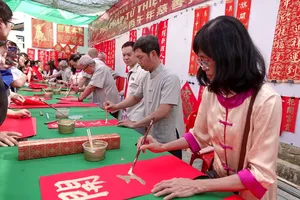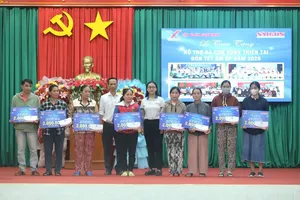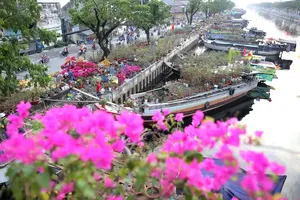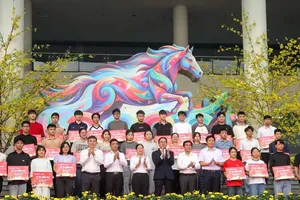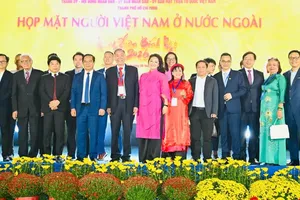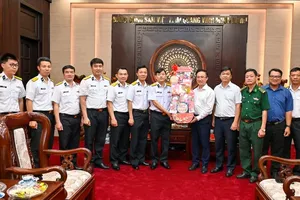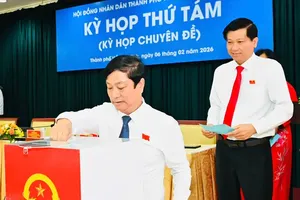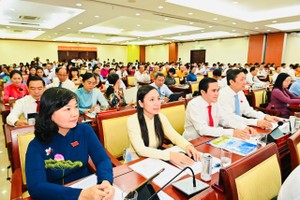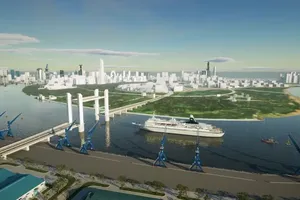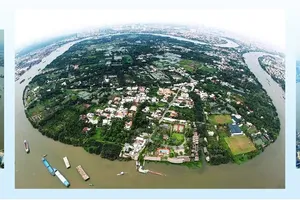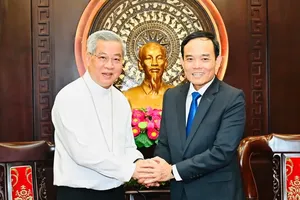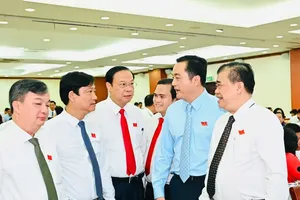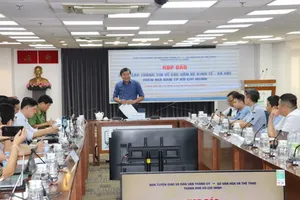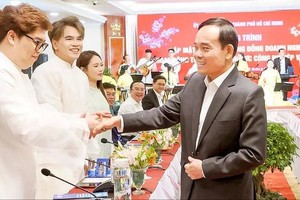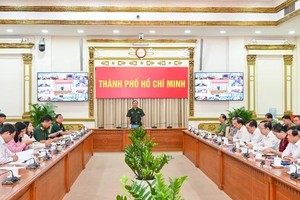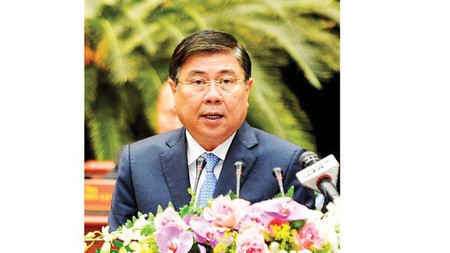
Discussing whether the 11th ICT contest is able to seek highly feasible products and solutions from Vietnamese businesses to build a smart city, Chairman Nguyen Thanh Phong confirmed that thanks to the reputation of the contest in the past few years, it could attract the participation of a large number of organizations and individuals, bringing along 65 practical ideas in various aspects like economic field, society, administration reform, sustainable development, urban management, and applications for citizens.
He cited some prominent examples of state offices, namely the People’s Committee of District 12, the HCMC Department of Health, the Ho Chi Minh City Power Corporation (EVNHCMC), whose solutions clearly signal a promising future of a sustainably developed city where residents enjoy high living standards. He also deeply appreciated private businesses with their products related to the digital transformation process, especially in the fields of healthcare and telecommunications; IT infrastructure services making use of cloud computing; the digital signature service; database storage, handling, and processing services. All of them are critical to develop a fully functional smart city.
Presenting the expectation of the municipal authorities when hosting the Festival for IT and AI Businesses, themed ‘Novel Awareness – Swift Change – Innovative Breakthrough’, the Chairman said that the festival aims at identifying the current status of IT businesses sited in HCMC, as well as existing problems they are encountering now, in order to reach feasible solutions to boost their sustainable development. He further explained that these enterprises have the leading role in creating a solid foundation for the growth of the digital economy and government.
Chairman Phong also mentioned the introduction of guidelines and missions of HCMC to improve competitiveness of domestic IT businesses and encourage IT startups in the festival. He referred to the addition of HueCIT into Quang Trung Software City (QTSC) and the conference ‘Investment Attraction into QTSC’ as practical ideas to promote the IT industry in HCMC.
Then the Chairman brought up the conference ‘International and Domestic Experience on Researching and Applying AI – Advice for HCMC’, co-held in September 2019 by World Bank and the HCMC People’s Committee. This conference focused on constructing an AI implementation ecosystem in the city from 2019 – 2025 so as to achieve the goal of establishing the four vital pillars in smart city building.
When being asked about the observable changes of HCMC in 2020, as well as initial results of the first stage in transforming HCMC into a smart city and the active participation of businesses in the next stage, Chairman Phong answered that the city has already launched its integrated and sharing database system for several aspects, operated its electronic information portal on healthcare centers, educational services, foreign investment projects. Simultaneously, the HCMC People’s Committee has introduced the Integrated Regulation, run the common database, created a safe legal corridor for this sharing.
Particularly, he reported that the HCMC Smart City operation center – the first stage (located at the HCMC People’s Committee) has already piloted connections between the database collected by more than 1,100 monitoring cameras of the HCMC Department of Transport and the ones of local People’s Committee; applied the Geographic Information System (GIS) for urban infrastructure management, including databases of posts and telecommunications, electricity, water supply and drainage system, environment and natural resources; run the 6 channels to receive feedback from citizens and businesses (the Hotline 1022).
Then the Chairman talked about the establishment of the simulation center to forecast local socio-economic strategies, which is able to deliver basic forecast ratings for 2020 to serve the scientific project ‘Evaluating Results of Socio-economic Development in HCMC in the Period from 2016 – 2020, with a Predicted Growth Scenario from 2021 – 2025’.
He concluded that the first stage of the smart city transformation project focuses on building necessary centers to serve the management task. Meanwhile, it is products of businesses that are able to form effective interactions between citizens and the common system to collect more practical solutions and ideas.
The Chairman repeated that the 11th ICT contest of HCMC successfully gathered capable IT businesses to develop promising applications for smart city constructing based on cloud computing, data handling and processing. The next year will be the time when HCMC concentrates more on supporting IT enterprises to develop useful software. He cited the case of the healthcare department, which impressively renovated itself this year thanks to the installation of specific information systems for the tasks of management, patient services, information and treatment search, and treatment booking. This is obviously smart healthcare that the city expects. Happily, he added the effective use of the Hotline 1022 in receiving feedback and recommendations from urban residents and organizations.
Discussing the future plans to aid businesses to incubate startup projects, especially those with feasible solutions in ICT, Chairman Phong stated that with the advantages of possessing great technology potential thanks to many modern universities, research institutes, and related state offices located here, HCMC is able to enjoy a sustainable development and advanced living standards. However, the city still needs more specific solutions to complete the smart city transformation project, to form a digital government, and to establish an innovative startup ecosystem.
He gladly reported that HCMC is now considered a successful case of innovative startup as it accounts for around 40-45 percent of the total 3,000 startup businesses of the nation. In 2019, approximately US$670 million were attracted in 50 startup projects nationwide, 23 of which are from HCMC. Several startups of the city confidently enter the global market. What is more, the city has continuously offered preferential conditions for startup activities via programs and contests, in hope of finding more fruitful startup cases in the near future.
Finally, the Chairman pointed out that 70 percent of startup businesses are in the IT filed; therefore, the municipal is going to especially concentrate on boosting their development.
